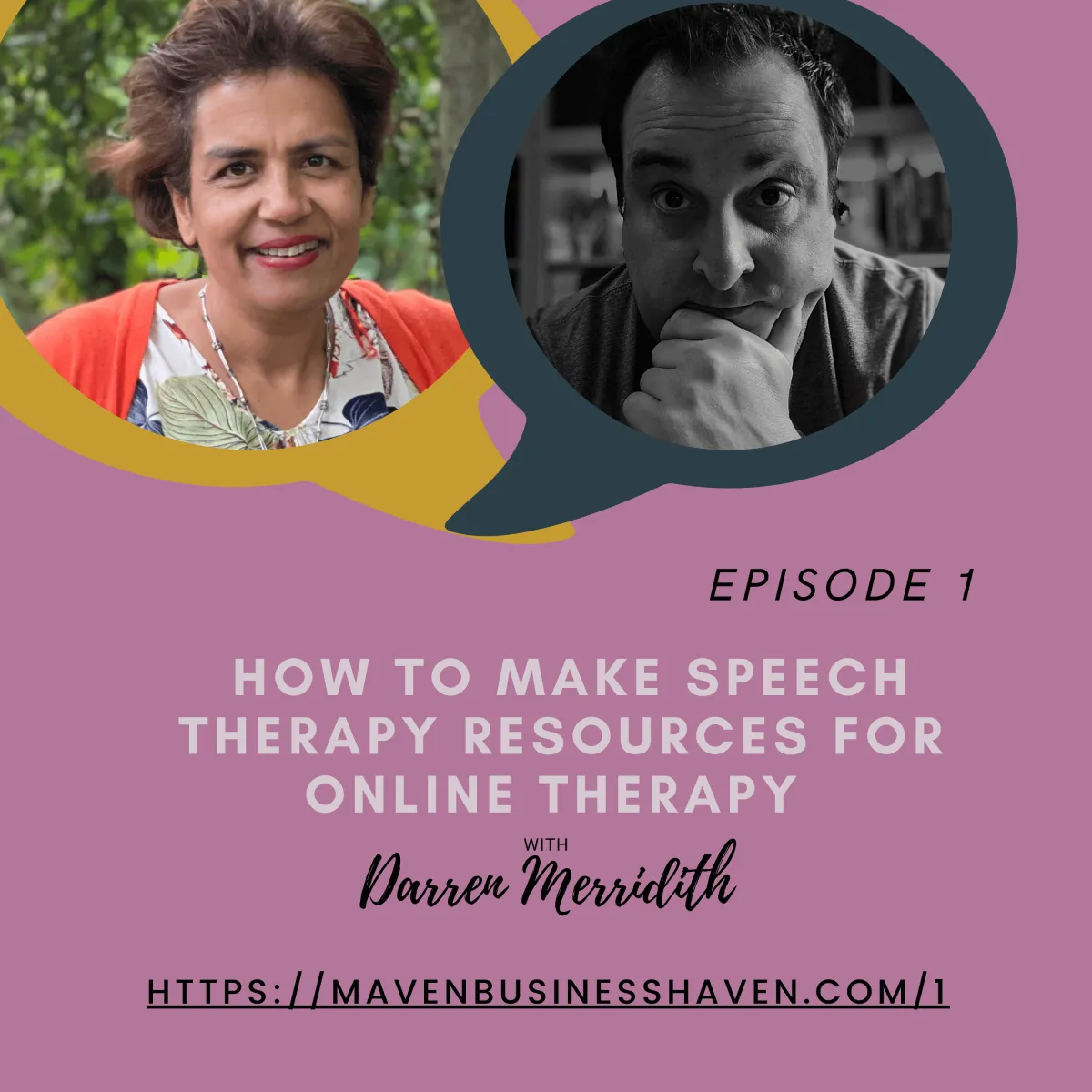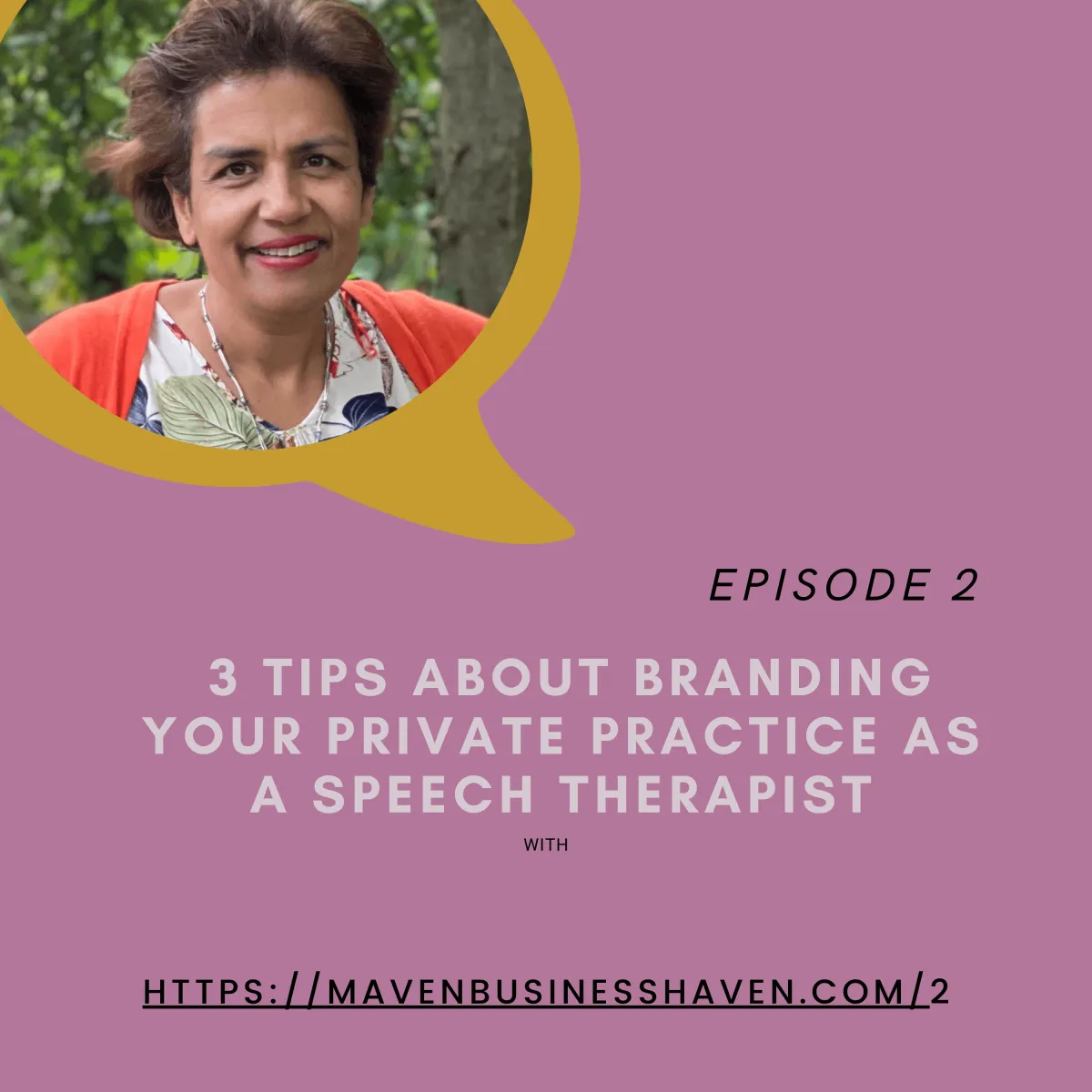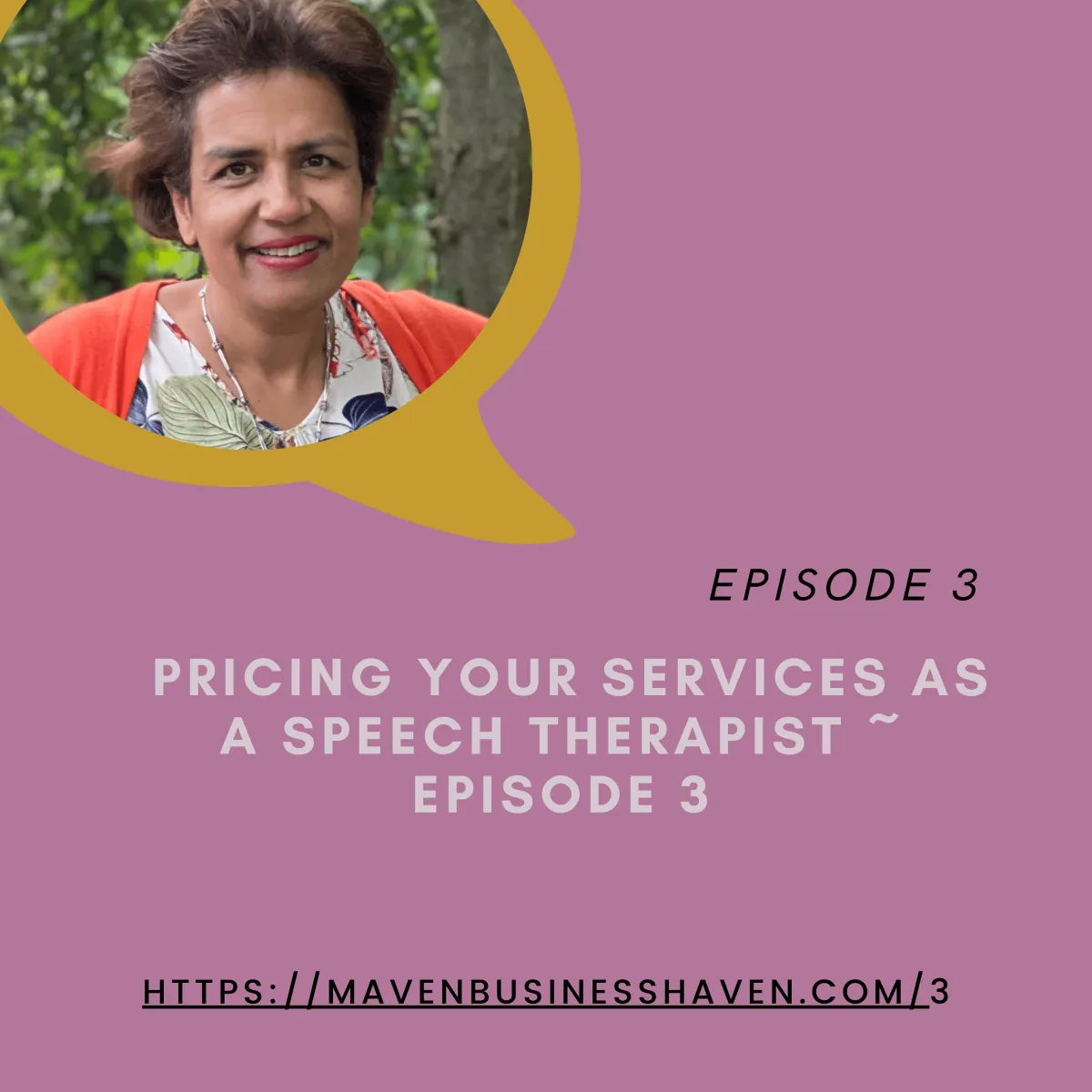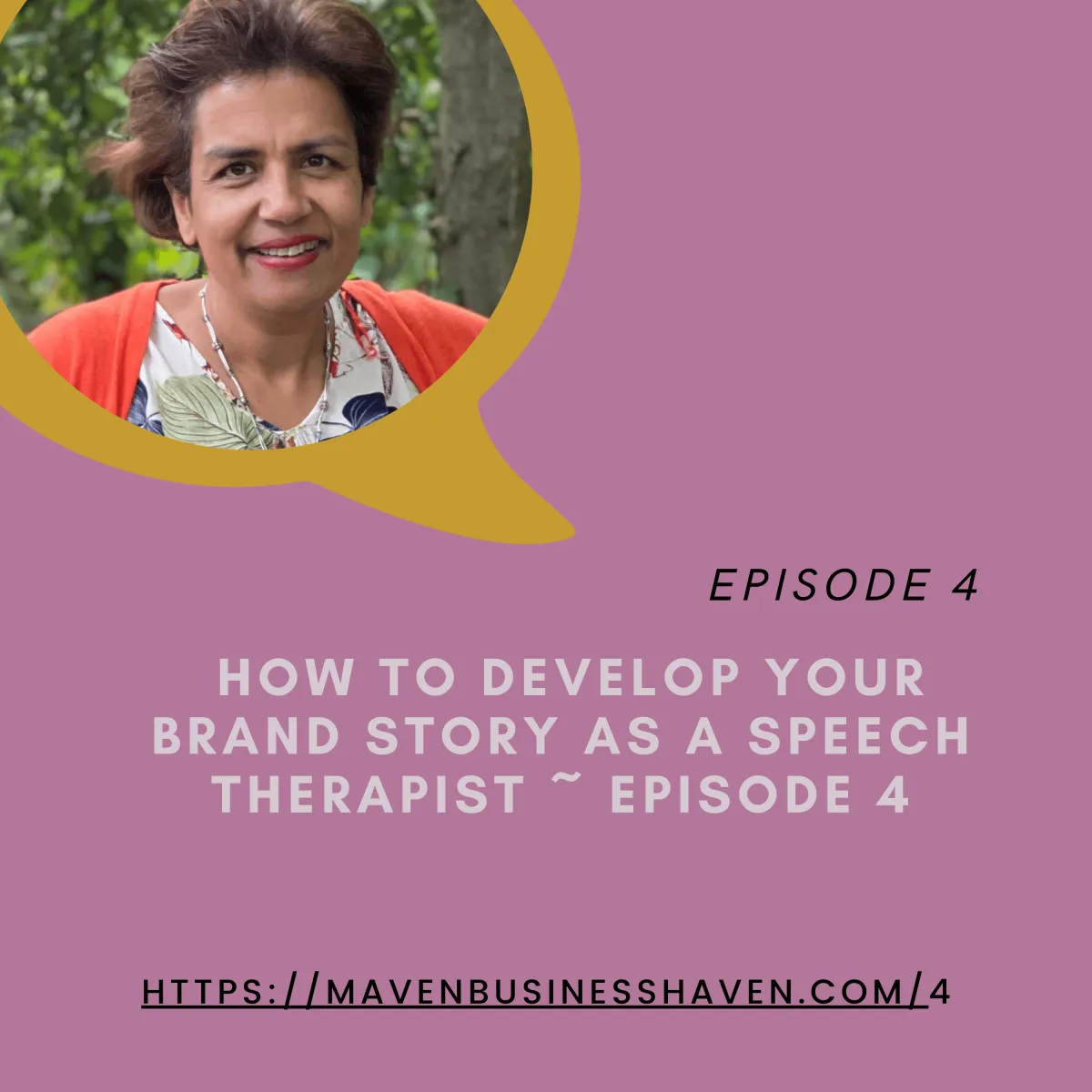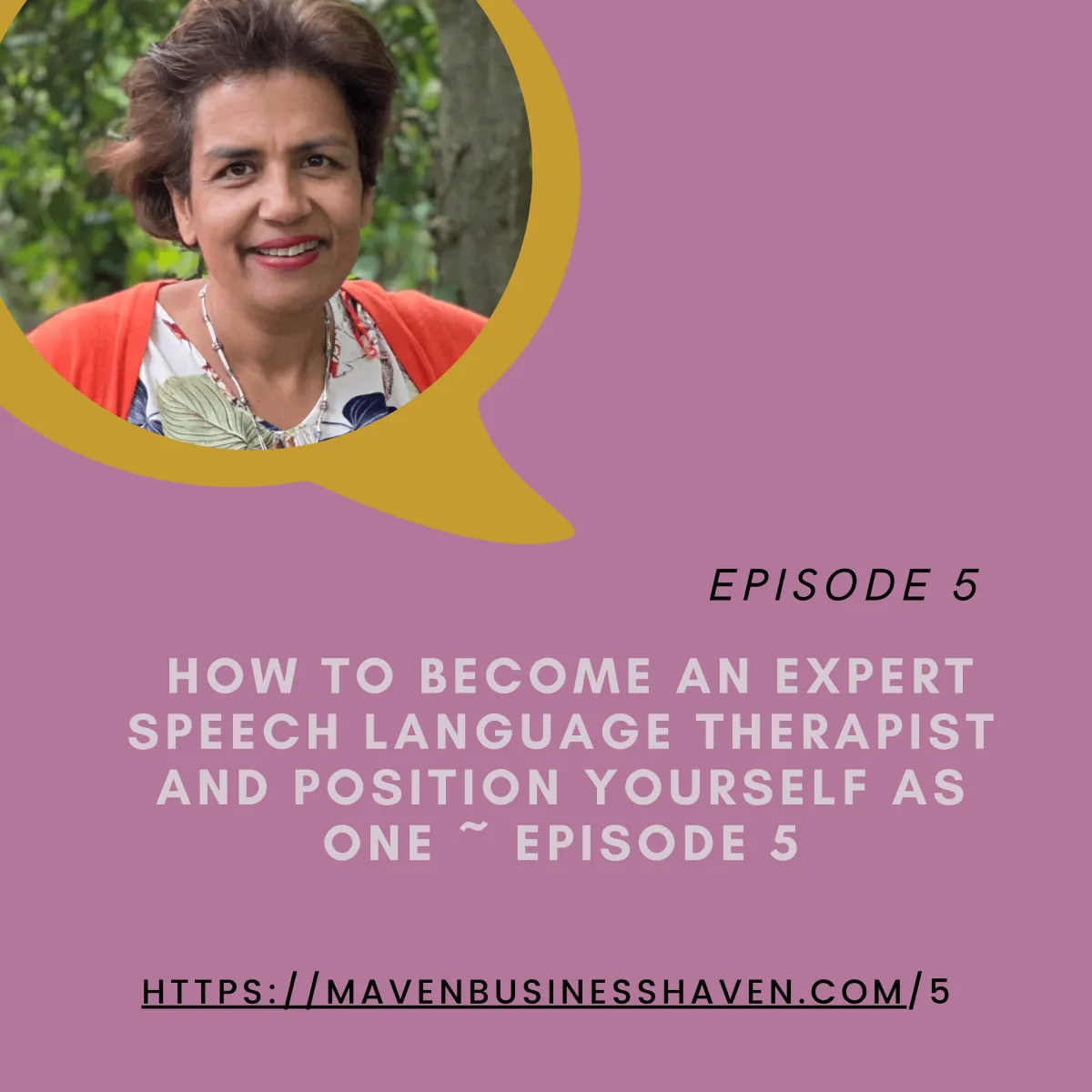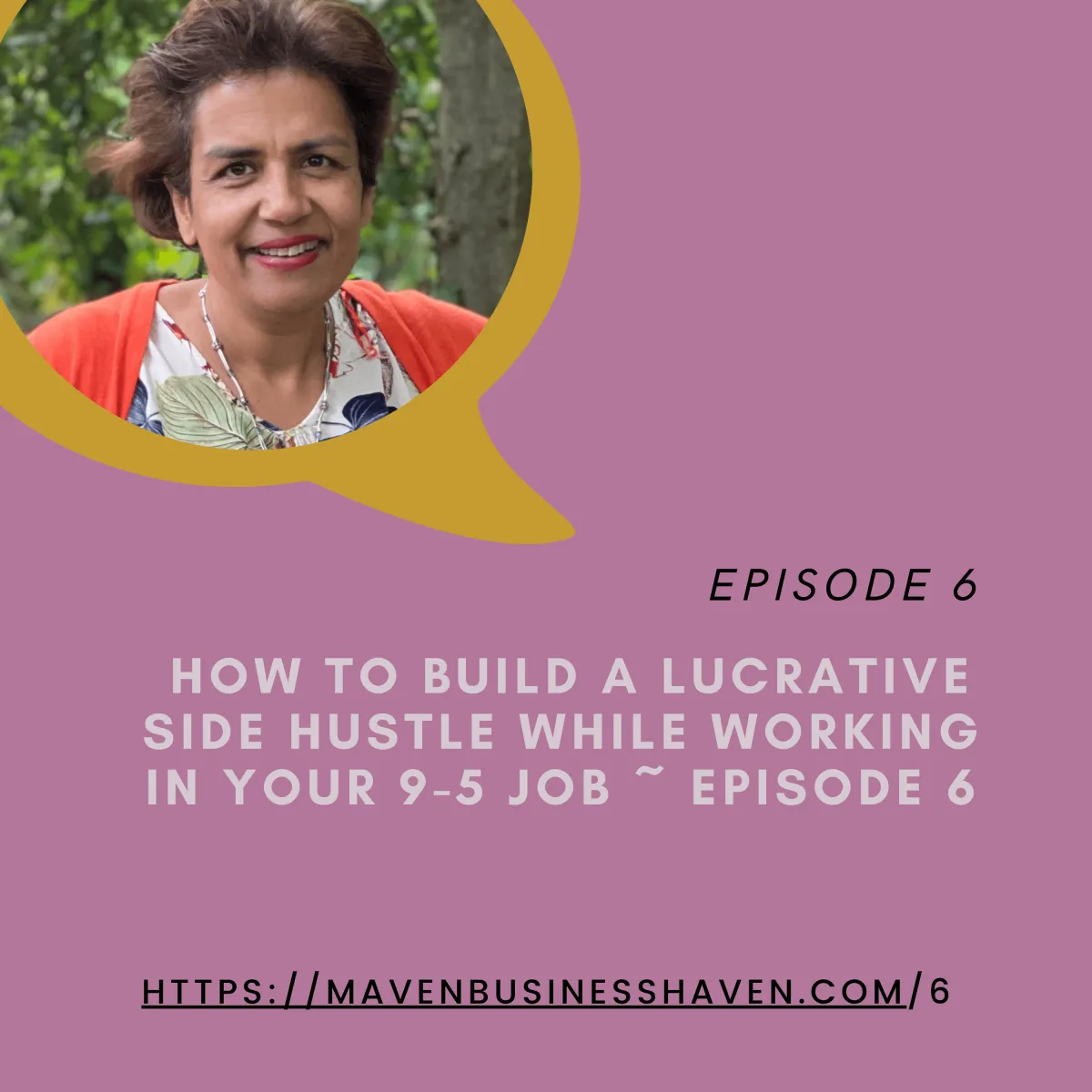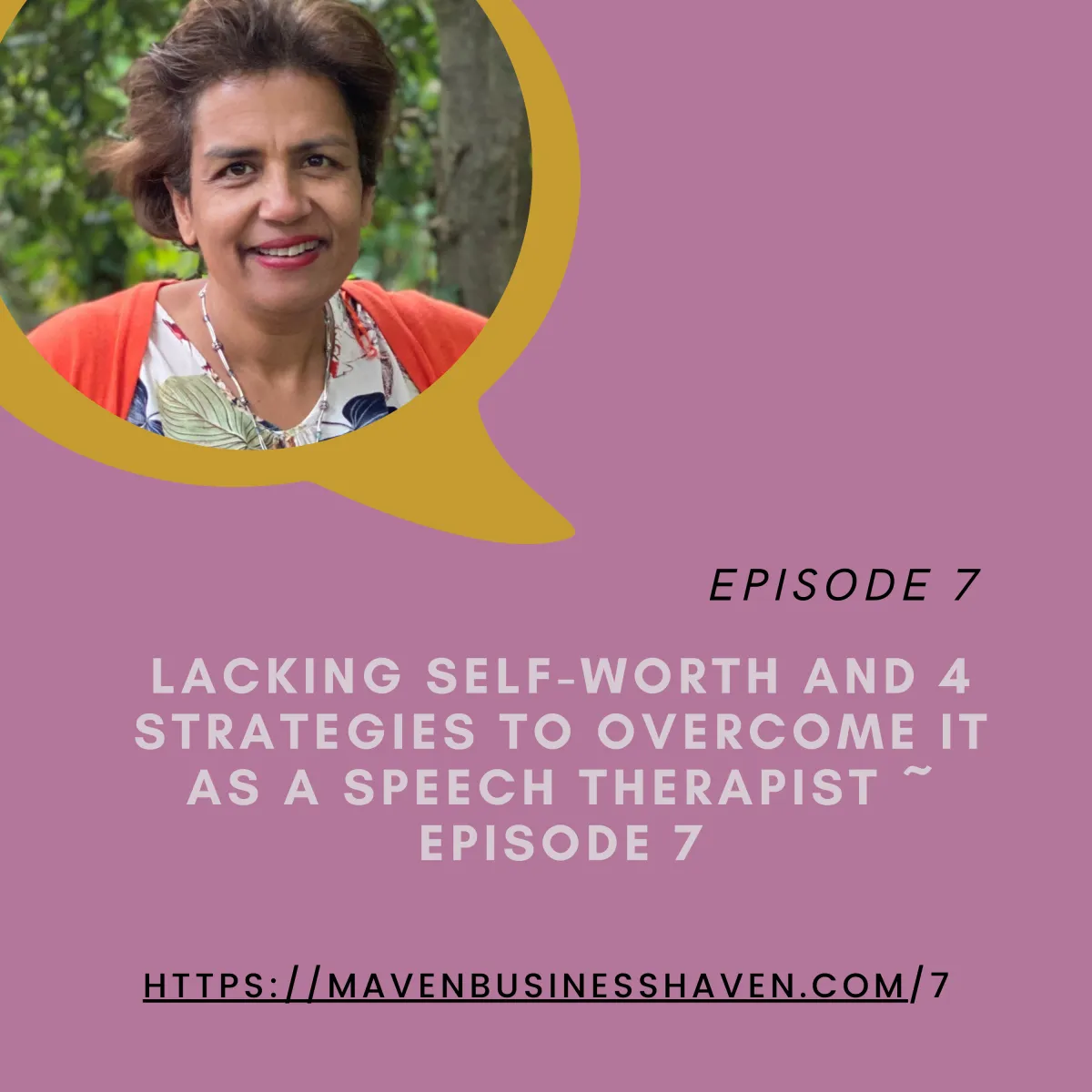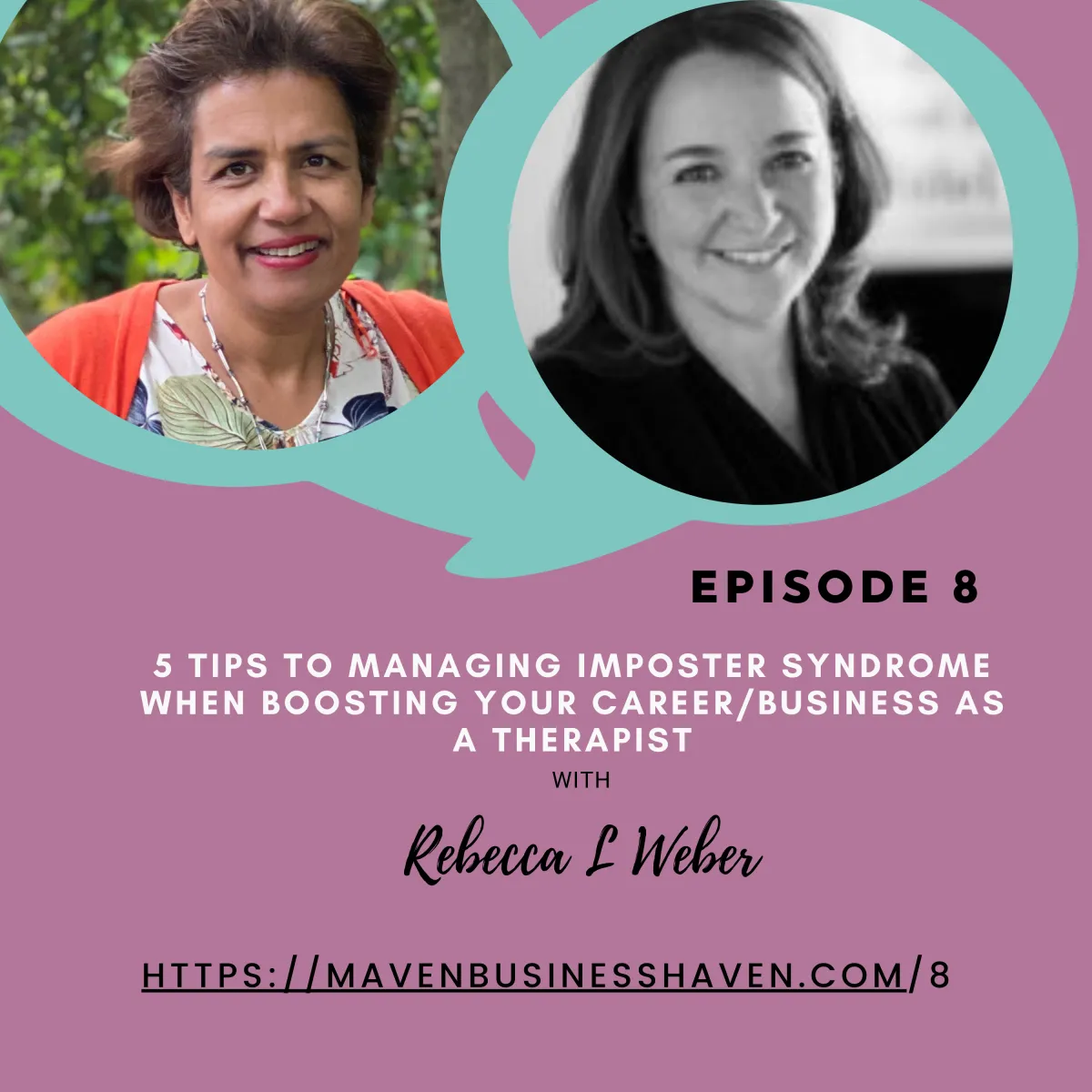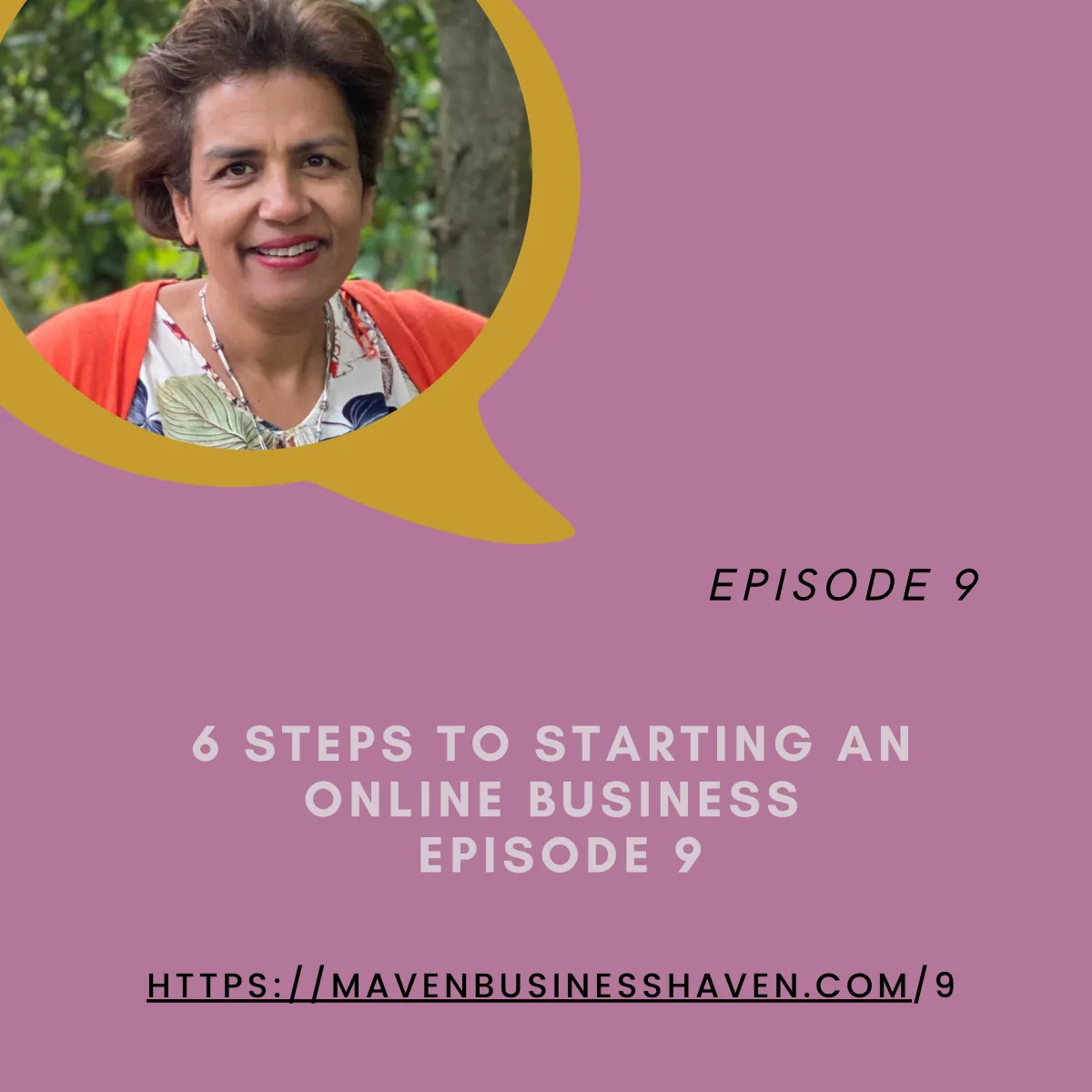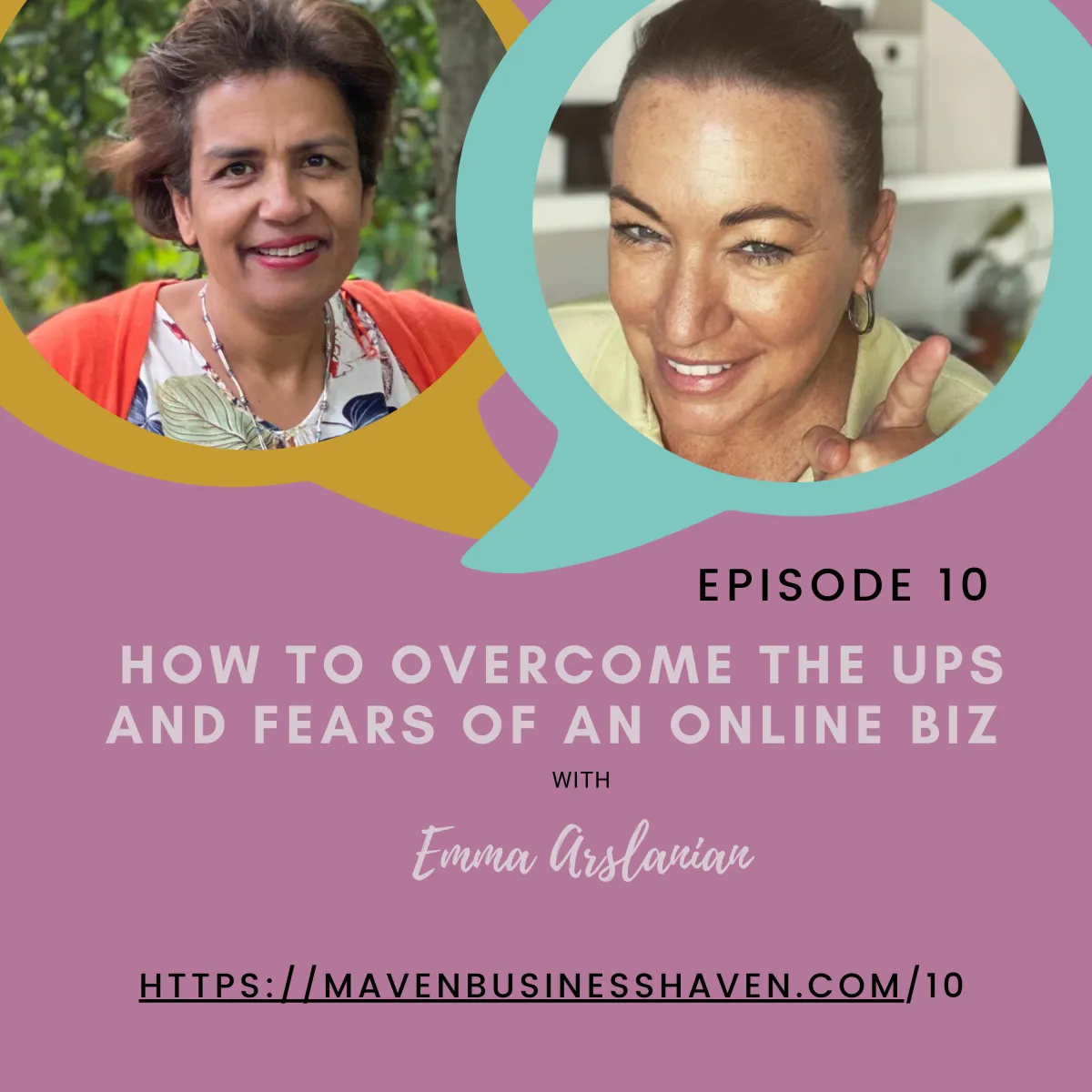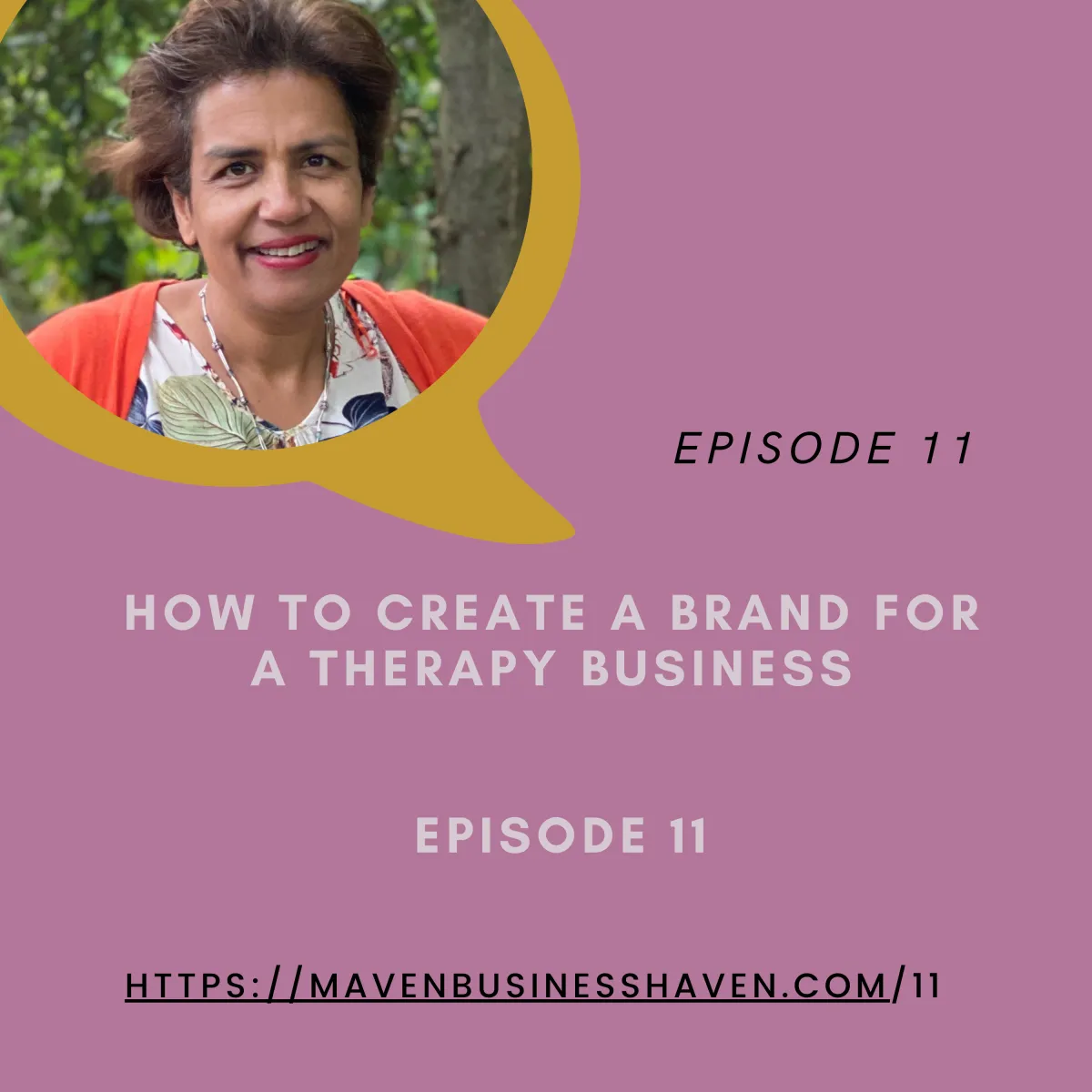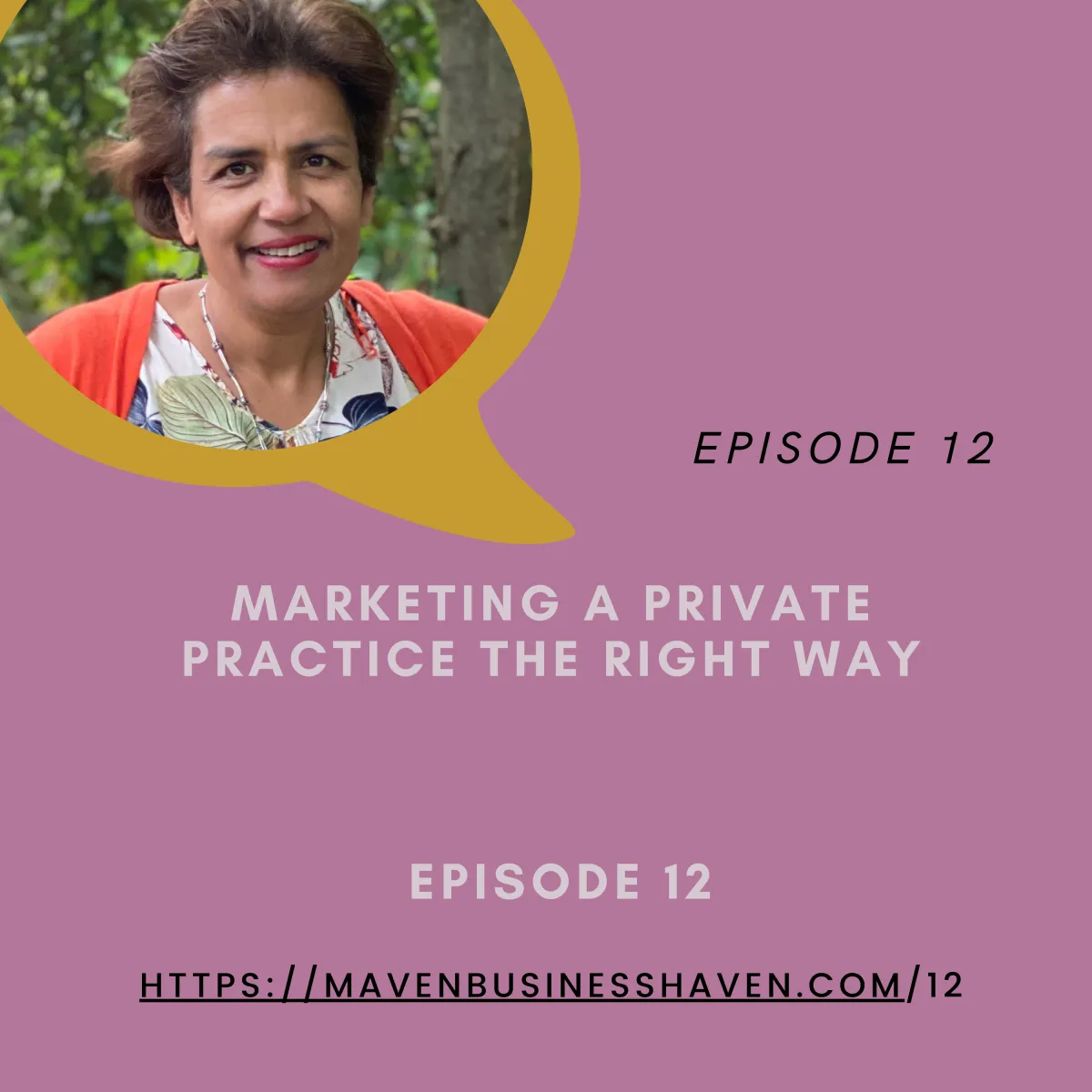VLOG
Audio Inspiration
Listening to podcasts inspires you, gives you clarity on what steps you need to take in your Therapy Business
Are you thinking of creating a website that resonates with your target audience and with space to jot down your ideas as you work through each step?
Then you need our
FREE WEBSITE WORKBOOK & PLANNER
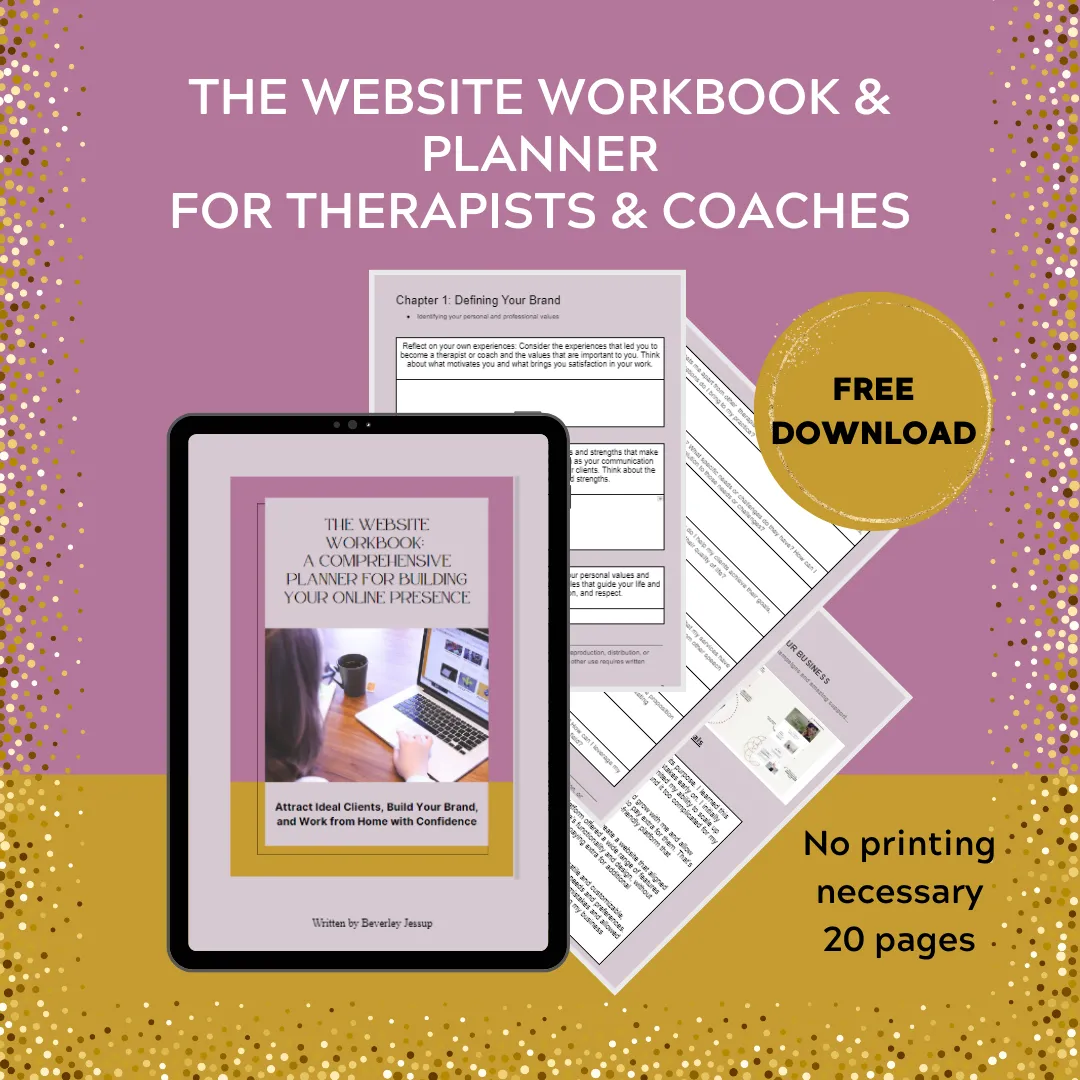
LATEST EPISODES
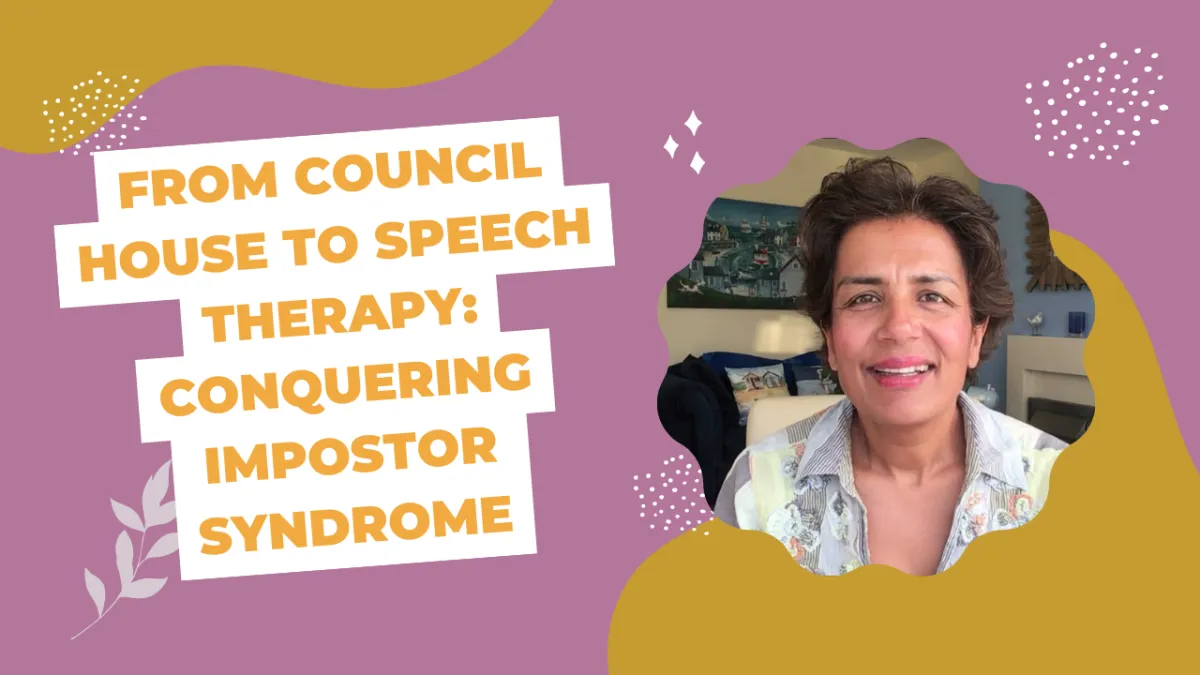
From Council House to Speech Therapy: Overcoming Impostor Syndrome with Research Insights
From Council House to Speech Therapy: Overcoming Impostor Syndrome with Research Insights
Impostor Syndrome is a pervasive psychological experience that affects professionals in all fields, including speech therapy. It’s the gnawing sense of self-doubt, the feeling that you're not good enough, and the belief that any moment now, someone will discover you're a fraud. Despite your qualifications, experience, and client success stories, Impostor Syndrome lingers.
As a speech therapist who grew up in a council house, I’ve encountered this internal struggle firsthand. I’ve questioned whether my background was enough to propel me toward professional success. What I’ve learned, both through personal experience and research, is that this feeling is widespread, affecting around 70% of professionals during their careers (Clance & Imes, 1978). Interestingly, it’s not rooted in skill deficiencies but rather in cognitive distortions and biases we impose on ourselves (Sakulku & Alexander, 2011).
This blog will delve into the psychological underpinnings of Impostor Syndrome, its disproportionate effect on professionals from underprivileged backgrounds, and the research-backed strategies to overcome it. Along the way, I’ll share my own journey and offer insights for fellow speech therapists who may be grappling with similar self-doubts.
The Hidden Struggle: Impostor Syndrome in Speech Therapy
As speech therapists, we work in a profession that requires significant expertise, empathy, and precision. We help individuals find their voice—often literally—but frequently struggle to find our own inner voice of confidence. Despite years of training, successful client outcomes, and professional accolades, many of us feel like impostors.
What Exactly Is Impostor Syndrome?
Impostor Syndrome, first coined by psychologists Pauline Clance and Suzanne Imes in 1978, refers to the persistent fear of being exposed as a "fraud." It doesn’t matter how much success or external validation you receive—those experiencing Impostor Syndrome attribute their achievements to luck, timing, or deceiving others into thinking they’re more capable than they truly are.
Studies show that Impostor Syndrome isn’t exclusive to any one profession. However, for speech therapists, the pressure to continually demonstrate expertise can exacerbate these feelings. Add to that the daily challenges of client care, and it's easy to fall into a cycle of self-doubt.
My Journey: From Council House to Professional Success
Growing up in a council house, my family faced financial challenges, and I never quite felt like I fit into the professional world. My parents didn’t attend university, and the idea of me becoming a professional speech therapist seemed like an audacious dream. I often questioned whether I deserved my place in this field, especially when comparing myself to colleagues from more affluent backgrounds.
These feelings of inadequacy intensified when I started working. I found myself constantly comparing my background, my accent, and my educational path to others, questioning whether my clients would take me seriously. I was an outsider in my own mind.
However, as I progressed in my career, I realized that my unique experiences were not a hindrance but a strength. Coming from a working-class background gave me a deep empathy for clients from all walks of life. This relatability made me a better therapist—one who could connect with clients in ways that others might not.
You’re Not Alone: The Prevalence of Impostor Syndrome
You might be surprised to know just how common Impostor Syndrome is, particularly among high-achieving individuals. According to Clance & Imes (1978), roughly 70% of people experience this feeling at some point in their lives.
Among professionals from underprivileged backgrounds, the incidence of Impostor Syndrome can be even higher due to systemic biases in education and career progression (Cokley et al., 2018). These biases can foster feelings of inferiority, particularly when entering a field where your peers may have had more opportunities or resources to succeed.
The good news? You're in good company. Many brilliant minds—including scientists, doctors, and even famous actors—have spoken publicly about their own struggles with Impostor Syndrome.
Why Does Impostor Syndrome Persist?
At its core, Impostor Syndrome stems from a dissonance between how you perceive yourself and your actual achievements. This psychological phenomenon is often fuelled by external pressures and internalized societal biases.
Cognitive Distortions: The Real Culprit
Impostor Syndrome doesn’t necessarily indicate a lack of skill. Instead, it is rooted in cognitive distortions—biased ways of thinking that cloud your perception of reality. These might include:
- All-or-nothing thinking: Believing that if you’re not perfect, you’re a failure.
- Minimization: Discounting your achievements and attributing them to external factors like luck or timing.
- Overgeneralization: Assuming that one setback means you’re not cut out for the job.
Research by Sakulku and Alexander (2011) highlights how these distorted patterns of thinking prevent professionals from internalizing their successes. This cognitive dissonance between one’s perceived self and actual accomplishments is compounded by societal biases, particularly among individuals from disadvantaged backgrounds.
Breaking the Cycle: Strategies to Overcome Impostor Syndrome
The great news is that you don’t have to remain trapped in this self-doubt. Here are six research-backed strategies that have helped me, and many others, combat Impostor Syndrome:
1. Share Your Feelings
Talking about Impostor Syndrome can lessen its grip. Find a trusted colleague or mentor who understands your experiences. Discussing your feelings can help validate your emotions and provide an outside perspective that reminds you of your competence.
A 2015 study published in Behavioral Psychology showed that simply acknowledging your self-doubt to someone else can significantly reduce the intensity of Impostor Syndrome (Thompson, 2015).
2. Focus on Client Impact
When I’m feeling like a fraud, I redirect my attention to my clients. Seeing the tangible results of my work—whether it’s a child mastering a new sound or an adult regaining their voice—grounds me in reality. Shifting focus away from your insecurities and towards the people you serve can provide immediate perspective.
3. Keep a 'Brag File'
This might feel uncomfortable at first, but collecting positive feedback from clients and colleagues is one of the most effective ways to combat Impostor Syndrome. Create a “brag file” where you store kind words, testimonials, or notes on successful outcomes. Review these when self-doubt creeps in.
4. Embrace Mistakes as Learning Opportunities
Mistakes don’t define you; they’re part of growth. Instead of viewing errors as evidence of incompetence, see them as valuable learning moments. Cognitive-behavioral therapy (CBT) techniques suggest reframing mistakes as opportunities for reflection and growth.
5. Develop a Personal Mantra
Create a mantra that you repeat to yourself when self-doubt arises. It can be as simple as “I am enough,” or, as in my case, “Oi, [Your Name], you’ve got this!” Using your name makes the affirmation feel more personal and empowering.
6. Keep Learning and Stay Curious
Remember, you don’t have to know everything. Professional growth is a lifelong journey. Embrace the learning process and recognize that seeking knowledge doesn’t diminish your expertise—it enhances it. Some of the most respected professionals are those who remain curious and open to growth.
Embracing Your Unique Background: Why Diversity Matters in Speech Therapy
Our backgrounds, no matter how humble, contribute to a richer, more diverse professional perspective. As speech therapists, we are in a unique position to empathize with clients from various walks of life. Whether you grew up in a council house, attended a non-elite university, or took a less traditional career path, your experiences can serve as assets in your practice.
Turning Perceived Weaknesses into Strengths
For those of us from working-class backgrounds, the journey to professional success may seem steeper. But the very challenges we face can make us more compassionate, resilient, and adaptable. These qualities are vital in the field of speech therapy, where empathy and flexibility are crucial.
Research-Backed Strategies for Building Confidence
If you're ready to conquer Impostor Syndrome, research suggests several tools and techniques that can help speech therapists develop lasting confidence in their abilities. One particularly effective approach is cognitive-behavioral therapy (CBT), which helps individuals reframe negative thoughts and replace them with more objective assessments of their abilities (Matthews & Clance, 1985).
CBT in Action: Rewriting the Script
CBT techniques can be as simple as writing down your automatic negative thoughts and actively challenging them with evidence. For instance, if you catch yourself thinking, “I’m not good enough,” counter that thought by reviewing your “brag file” and reminding yourself of the positive feedback you’ve received from clients.
Additionally, maintaining an attitude of self-compassion is crucial. Remember that everyone makes mistakes, and perfection is an unattainable goal. Instead, focus on progress and continued growth.
You’re Not a Fraud: Recognizing Your Worth
If there’s one thing you take away from this blog, let it be this: You are not a fraud. Your experiences, background, and unique journey have brought you to where you are today. You’ve earned your place in the field of speech therapy, and you are making a difference in the lives of your clients.
The next time you feel self-doubt creeping in, remember that you’ve worked hard to get here. Your clients value you, your colleagues respect you, and you have the skills and empathy needed to succeed.
Join a Community of Empowered Speech Therapists
If you're looking to continue growing both personally and professionally, consider joining a supportive community like the Maven Business Haven Club. Surrounding yourself with other speech therapists who understand your journey can help you overcome Impostor Syndrome and thrive in your practice.
Final Thoughts: Own Your Journey
Impostor Syndrome may never fully disappear, but with the right tools, support, and mindset, you can learn to manage it and step into your professional power. By embracing your unique background, challenging cognitive distortions, and celebrating your successes, you can break free from the cycle of self-doubt.
Remember, you are enough. Keep learning, keep growing, and keep making a difference in the lives of your clients. You're not an impostor—you're a brilliant, capable speech therapist.
Use discount code HNPEO75K at checkout to claim your 50% off.
Don't let self-doubt hold you back any longer. Join us in the Maven Business Haven Club and take the next step in your journey from self-doubt to self-confidence.
[Click here to join the Maven Business Haven Club: https://mavenbusinesshaven.com/club
Remember, you're not alone in this journey. Let's grow together and make an even bigger impact in the lives of our clients. I can't wait to welcome you to our community!

Hi, I'm Bev
a seasoned speech therapist with over 30 years of global experience.
When I’m not helping others communicate effectively, I'm enjoying precious family time with my husband and three sons. I also love exploring new destinations and hosting art journaling retreats.
But here's what truly fuels my passion: guiding therapists and coaches to build thriving practices without imposter fears or tech overwhelm.
My mission is clear: I want to empower more therapists and coaches to confidently share their talents with the world, thriving in purpose and creativity.
If you’re ready to turn your passion into a purpose-driven practice, count me in to support you every step of the way.






Fancy Joining us on a Retreat in Italy and meet other like-minded therapists and coaches?
Discover the transformative power of journaling to unlock your full potential as a therapist or coach. Our carefully crafted journals are designed to guide you through insightful self-reflection, goal-setting, and personal growth exercises, providing you with a valuable tool to delve deep into your thoughts and emotions.
By investing in your mind through these workbooks & journals, you'll gain clarity, develop new perspectives, and strengthen your practice, ultimately empowering yourself to better support and guide your clients on their own journeys of growth and transformation.
Don't miss this opportunity to enhance your skills and take your profession to new heights with the aid of our thoughtfully designed journal.


Hi there, I'm Bev Jessup
Even though I play an inspiring entrepreneur on the internet, I’m also a real person and a tired mother of three grown-up adorable boys.
I work purely online as a speech therapist and online consultant whilst my hubby Adam goes off to work.
I’m passionate about changing the world. And one extremely impactful way to do that is to empower speech therapists to share their talents worldwide and put more money in their hands in the process.

"My role in the world is to help therapists and coaches with their tech fears so that they can create a profitable online business without burnout"

You know that horrible feeling in your stomach when you feel that you don't want to work so many hours just to make ends meet?
Or when you procrastinate starting your own private practice because you don't know where to start?
Or the fact that your income has stagnated and you don't know how to push it to the next level? Or you are wondering how to get more clients without having to drop loads of fliers off at the GP surgeries or schools? Or you have dreamed of travelling and working at the same time?
I get you and I help therapists overcome these obstacles so they lead a more fulfilled life and business
Thank you for tuning in and letting me part of your journey. I know your dream is worth it so I want to encourage you to follow your dreams
PRIVACY POLICY TERMS OF SERVICES CONTACT US

